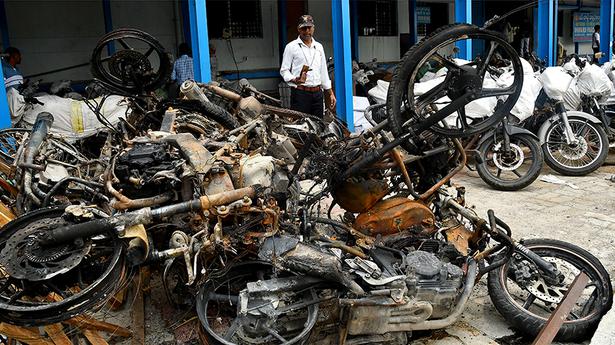
Fearing arrest, army job aspirant tries to end life in Telangana’s Jangaon
The Hindu
The man was one among many distraught army job aspirants who gathered in Secunderabad as part of anti-Agnipath protest
An army job aspirant allegedly attempted suicide by consuming pesticide at his native Kothapally village in Station Ghanpur mandal of Jangaon district late on Tuesday evening fearing arrest by the police in connection with the Friday’s large-scale violence and arson by a mob of protesters at the Secunderabad railway station against the Centre’s ‘Agnipath’ scheme.
According to sources, Ajay, who allegedly took part in the anti-Agnipath protest on Friday, was apprehensive of arrest by the police, who are probing the case of vandalism.
He was rushed to a hospital in the district headquarters town and then referred to a super-speciality hospital in Warangal late on Tuesday night for better treatment. His condition is stated to be stable.
Sources said that he cleared physical fitness tests in the army recruitment rally in the past and was waiting for the Common Entrance Examination (CEE) to crack the exam and realise his ambition of joining the Indian Army.
He was simultaneously preparing for the police constable recruitment test to join the uniformed service.
He was one among many distraught army job aspirants from the old undivided Warangal district and various other districts, who gathered in Secunderabad as part of anti-Agnipath protest allegedly organised through some WhatsApp groups, sources added.
It was not immediately known whether any case had been registered against him or not in connection with Secunderabad railway station arson case, local police sources said.













